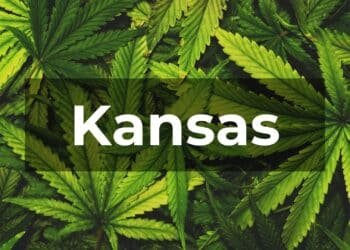Welcome to our comprehensive guide on marijuana legalization in Vermont. If you’re wondering whether it’s legal to use or possess marijuana in the Green Mountain State, you’ve come to the right place! In this article, we’ll provide you with a detailed overview of the state’s marijuana laws and regulations, including information on recreational and medical use, possession and usage restrictions, and driving under the influence. Let’s dive in and explore the fascinating world of Vermont’s cannabis regulations.
Marijuana Legalization History in Vermont
While Vermont may be considered a relatively small state, it has made significant strides in marijuana legalization in recent years. The state first legalized medical marijuana in 2004, and in 2018, it became the first state in the country to legalize recreational use through legislation rather than a voter initiative.
The recreational marijuana law, which went into effect on July 1, 2018, allows individuals 21 years of age or older to possess up to one ounce of marijuana and grow two mature plants or four immature plants per household. The law also established a Regulatory Commission to oversee the licensing and regulation of commercial marijuana establishments, which includes retailers, cultivators, and testing facilities.
Marijuana Legalization History in Vermont: Key Provisions
Some key provisions of Vermont’s marijuana laws include:
| Law | Description |
|---|---|
| Medical Marijuana Law | Vermont’s medical marijuana law allows patients with qualifying conditions to obtain a registry identification card, which enables them to possess up to two ounces of marijuana and cultivate a limited number of plants. |
| Marijuana Possession Penalties | Possession of small amounts of marijuana is considered a civil offense in Vermont, punishable by a fine of up to $200. Possession of larger amounts or intent to distribute can result in more severe penalties. |
| Public Use Ban | While individuals are allowed to possess and use marijuana in private, using it in public is still illegal and can result in fines or other penalties. |
Overall, Vermont’s history with marijuana legalization has been one of progress and innovation. As the state continues to refine and develop its marijuana laws, it remains a key player in the ongoing national conversation about the future of marijuana legalization in the United States.
Recreational Marijuana Laws in Vermont
Vermont became the ninth state in the United States to legalize recreational marijuana in July 2018. The possession and use of small amounts of cannabis by adults aged 21 and older is now legal in the state. However, many restrictions and regulations still apply.
Adults aged 21 and older may possess up to one ounce (28 grams) of marijuana and may grow up to two mature and four immature plants for personal use. The plants must be grown in a secure, locked area. It is illegal to smoke or consume marijuana in public spaces, on school grounds, or while driving.
It is important to note that while marijuana is legal for recreational use in Vermont, it is still illegal under federal law. This means that individuals can still face legal consequences if they possess or use marijuana on federal lands or if they transport it across state lines.
Individual towns and municipalities in Vermont can also choose to prohibit the sale or distribution of recreational marijuana within their borders. It is important to check local regulations before purchasing or using marijuana in Vermont.
| Allowable Activity | Legal Limitations |
|---|---|
| Possession | Up to one ounce (28 grams) for personal use |
| Use | Only in private spaces; not in public, on school grounds, or while driving |
| Grow | Up to two mature and four immature plants for personal use; plants must be grown in a secure, locked area |
It is important to remember that even though recreational marijuana is legal in Vermont, it is still illegal to sell or distribute the drug without a license.
Individuals who violate Vermont’s recreational marijuana laws may face legal consequences, including fines and imprisonment. However, the penalties for possession and use are generally less severe than those for other controlled substances such as heroin or cocaine.
“Vermont’s legalization of recreational marijuana reflects changing attitudes toward the drug and an increasing recognition of its potential medical benefits.”
Conclusion
Overall, Vermont’s recreational marijuana laws reflect a growing trend throughout the United States towards a more relaxed approach to regulating the drug. However, it is important for individuals to be aware of the limitations and restrictions that still apply, and to exercise caution when possessing or using marijuana in the state.
Medical Marijuana Laws in Vermont
Vermont’s medical marijuana program was established in 2004 under Act 86. The program allows patients with qualifying medical conditions to access and use medical marijuana. Patients must register with the Vermont Marijuana Registry and obtain a medical marijuana card in order to participate in the program.
Qualifying medical conditions in Vermont include cancer, HIV/AIDS, glaucoma, Crohn’s disease, Parkinson’s disease, multiple sclerosis, and more. Patients must obtain a written certification from a doctor stating that they have a qualifying condition and may benefit from medical marijuana.
The amount of medical marijuana that a patient can possess in Vermont is limited to two ounces per month. Patients are not allowed to grow their own marijuana and must obtain it from a licensed dispensary.
Medical Marijuana Dispensaries
Vermont currently has five licensed medical marijuana dispensaries. These dispensaries are strictly regulated by the state and must adhere to strict rules regarding the cultivation, processing, and distribution of medical marijuana. They are only allowed to sell medical marijuana to registered patients with a valid medical marijuana card.
In order to obtain medical marijuana from a dispensary, patients must first designate a dispensary on their application to the Vermont Marijuana Registry.
Dispensaries in Vermont offer a variety of medical marijuana products, including flower, edibles, tinctures, and concentrates. They are staffed by trained professionals who can help patients choose the right products for their individual needs.
Overall, Vermont’s medical marijuana program is designed to provide safe and legal access to medical cannabis for patients who need it. With strict regulations and oversight, the program is helping to ensure that patients receive high-quality medical marijuana from licensed and reputable dispensaries.
Possession and Usage Restrictions
While marijuana use and possession is legal in Vermont, there are still restrictions in place to ensure public safety. It is important to understand these regulations to avoid any potential penalties.
Possession Limits
Adults aged 21 and above are allowed to possess up to one ounce (28 grams) of marijuana or five grams of hashish in public, and up to two mature and four immature marijuana plants per household.
However, possession of more than one ounce of marijuana, more than five grams of hashish, or more than two mature and four immature plants can result in criminal charges.
Usage Restrictions
While marijuana use is legal, there are still restrictions in place to ensure it is used responsibly. It is illegal to consume marijuana in public places, including parks, sidewalks, and roads. It is also illegal to drive under the influence of marijuana.
It is legal to consume marijuana on private property with the permission of the owner, as long as it is not visible from a public place.
Penalties for Violations
Violations of marijuana possession and usage restrictions can result in fines and criminal charges. For example, possessing more than one ounce of marijuana can result in a fine of up to $500, while possessing more than two mature and four immature plants can result in a fine of up to $200.
Driving under the influence of marijuana can result in a fine of up to $750 and up to two years in jail for the first offense.
It is important to understand and follow Vermont’s marijuana laws and regulations to avoid any potential legal consequences. Use marijuana responsibly and always prioritize public safety.
Driving Under the Influence of Marijuana
It is illegal to drive under the influence of marijuana in Vermont, just as it is illegal to drive under the influence of alcohol. The state’s laws and regulations surrounding driving under the influence of marijuana are designed to promote safety on the roads and reduce the risk of accidents.
If you are pulled over by law enforcement and suspected of driving under the influence of marijuana, you may be asked to perform a field sobriety test or provide a blood or urine sample. Refusal to do so can result in fines and license suspension. If the results of the test indicate that you are over the legal limit, you will face penalties such as fines, license suspension, and possibly even jail time.
It’s important to note that marijuana can stay in your system for several days or even weeks after use, so it’s possible to test positive even if you haven’t used marijuana recently. However, if you are using marijuana and plan on driving, it’s best to wait until the effects of the drug have worn off completely before getting behind the wheel.
Penalties for Driving Under the Influence of Marijuana
| Offense | Penalty |
|---|---|
| First Offense | Fine of up to $750, license suspension for 90 days |
| Second Offense | Fine of up to $1,500, license suspension for 18 months, possible jail time |
| Third Offense | Fine of up to $2,500, license suspension for 3 years, possible jail time |
It’s worth noting that driving under the influence of marijuana is a serious offense in Vermont, and the penalties can be quite severe. In addition to fines and license suspensions, you may also be required to attend a substance abuse program, perform community service, or even install an ignition interlock device in your vehicle.
If you have been charged with driving under the influence of marijuana in Vermont, it’s important to seek legal counsel as soon as possible. A qualified attorney can help you understand your options and defend your rights in court.
Vermont Marijuana Dispensaries
In Vermont, medical marijuana can only be obtained through state-licensed dispensaries. As of 2021, there are a total of five dispensaries operating across the state, located in Brattleboro, Burlington, Middlebury, Montpelier, and Rutland. These dispensaries are subject to strict regulations and oversight by the Vermont Department of Public Safety.
Patients who have received a medical marijuana card can visit any of these dispensaries to obtain their prescribed cannabis products. Each dispensary has a range of products available, including different strains of marijuana, edibles, and topical treatments. The staff at the dispensaries are trained to provide assistance to patients who are new to using medical cannabis.
While Vermont has legalized recreational marijuana use, there are currently no licensed dispensaries for recreational users. However, the state has indicated that it may begin accepting applications for licenses in the near future.
Marijuana Legalization in Other States
While Vermont has made significant strides in legalizing marijuana, it is not the only state to do so. As of 2021, there are 15 states that have legalized recreational marijuana use, in addition to the District of Columbia.
These states include:
- Alaska
- Arizona
- California
- Colorado
- Illinois
- Maine
- Massachusetts
- Michigan
- Nevada
- New Jersey
- Oregon
- South Dakota
- Vermont
- Virginia
- Washington
Each of these states has its own set of laws and regulations surrounding marijuana use, possession, and distribution. Some states have more lenient laws regarding possession and usage, while others have stricter regulations.
For example, in Colorado, adults over the age of 21 can possess up to one ounce of marijuana at a time. In California, adults can possess up to one ounce for recreational use and up to eight ounces for medical use. In Oregon, adults can possess up to one ounce in public and up to eight ounces at home.
It is important to note that despite these varying laws, marijuana remains illegal under federal law. The federal government classifies marijuana as a Schedule I drug, which means it is considered to have no medical value and a high potential for abuse.
Overall, while there is some variation in marijuana laws and regulations between states, there is a growing trend towards legalization and decriminalization of marijuana across the country.
Benefits of Marijuana Legalization
As Vermont continues to navigate the waters of marijuana legalization, there are a number of potential benefits to consider. Here are some of the most significant:
- Increased tax revenue: One of the most obvious benefits of legalizing marijuana is the potential for increased tax revenue. In states where marijuana is legal, taxes on cannabis sales can generate millions of dollars in revenue each year, which can be used to fund education, healthcare, and other important initiatives.
- Improved access to medical cannabis: For patients who rely on medical cannabis to manage pain, nausea, and other symptoms, legalization can be a game-changer. With easier access to medical marijuana, patients may be able to reduce their reliance on other, more harmful medications.
- Reduced criminalization: By legalizing marijuana, Vermont can also reduce the number of people who are criminalized for simple possession of the drug. This can help to reduce the burden on the criminal justice system, and free up resources to pursue more serious criminal activities.
- Job creation: Legalization could also bring new jobs to Vermont, particularly in the areas of cultivation, manufacturing, and retail. This could help to boost the state’s economy, and create new opportunities for residents.
- Less strain on law enforcement: When marijuana is illegal, law enforcement agencies are often tasked with tracking down and prosecuting users and dealers. By legalizing the drug, Vermont can reduce the burden on these agencies, and allow them to focus on more serious crimes.
Of course, there are also some potential downsides to legalization, which we’ll explore in the next section.
Criticisms of Marijuana Legalization
Although marijuana legalization in Vermont has been met with widespread approval and support, there are still concerns and criticisms surrounding this issue. Some opponents argue that legalization could have negative effects on public health and safety, while others worry about increased drug use and addiction. Here are some of the most common criticisms of marijuana legalization in Vermont:
- Increased drug use: One of the main criticisms of marijuana legalization is that it could lead to increased drug use and addiction. Opponents argue that legalizing marijuana sends the wrong message to young people and could normalize drug use, which could lead to a rise in addiction rates.
- Impaired driving: Another concern is that legalization could lead to more instances of impaired driving, which could put public safety at risk. While Vermont does have laws in place to prevent marijuana-impaired driving, opponents worry that these laws may not be effective enough to prevent accidents and fatalities.
- Health risks: Some opponents of marijuana legalization worry that the drug could have negative health effects, particularly on young people and pregnant women. They argue that more research is needed to fully understand the long-term health risks associated with marijuana use, and until then, legalization should be avoided.
- Increased crime: Finally, some opponents worry that legalization could lead to an increase in crime and other social problems. They argue that the underground market for marijuana will continue to thrive, and that legalizing the drug will only lead to more criminal activity and societal harm.
“While many people in Vermont support marijuana legalization, there are still valid concerns and criticisms surrounding this issue. It’s important to weigh the pros and cons carefully as we move forward.”
Future of Marijuana Legalization in Vermont
Despite the progress made towards marijuana legalization in Vermont, there are still ongoing debates and discussions about the future of the industry in the state. As of now, there are no pending initiatives or legislation aimed at further legalizing cannabis, but this may change in the future, particularly as other states continue to relax their marijuana laws.
Advocates for marijuana legalization will continue to push for the expansion of existing laws, highlighting the potential economic benefits and the benefits to public health from increased access to medical cannabis. Opponents, on the other hand, may continue to voice concerns about the potential negative impacts on public health and safety, as well as increased criminal activity and drug use.
It remains to be seen what the future holds for marijuana legalization in Vermont, but one thing is certain: the conversation is far from over, and both supporters and opponents of marijuana use will continue to advocate for their positions.
Frequently Asked Questions about Marijuana Legalization in Vermont
Q: Is it legal to use marijuana in Vermont?
A: Yes, both medical and recreational use of marijuana is legal in Vermont, but there are restrictions that individuals must follow.
Q: What are the possession limits for marijuana in Vermont?
A: Individuals aged 21 and older can possess up to one ounce of marijuana and cultivate up to two mature plants or four immature plants for personal use. Medical marijuana patients can possess up to two ounces of marijuana and cultivate up to nine plants, with additional plants allowed on a case-by-case basis.
Q: Can I smoke or consume marijuana in public in Vermont?
A: No, it is illegal to smoke or consume marijuana in public places in Vermont. This includes public parks, sidewalks, and other outdoor spaces, as well as bars and restaurants.
Q: Can I drive under the influence of marijuana in Vermont?
A: No, it is illegal to drive under the influence of marijuana in Vermont. Individuals found to be driving under the influence of marijuana can face penalties including fines, license suspension, and even jail time.
Q: Are there any restrictions on where I can purchase marijuana in Vermont?
A: Yes, only licensed dispensaries are permitted to sell medical marijuana in Vermont. Recreational marijuana can be purchased at licensed dispensaries as well as through home cultivation or gifting among adults aged 21 and older.
Q: What medical conditions qualify for medical marijuana use in Vermont?
A: In Vermont, medical marijuana can be prescribed for a variety of medical conditions, including cancer, glaucoma, HIV/AIDS, Crohn’s disease, Parkinson’s disease, and multiple sclerosis, among others.
Q: What are the tax implications of marijuana legalization in Vermont?
A: Recreational marijuana sales in Vermont are subject to a 14% excise tax, in addition to the state’s 6% sales tax. Medical marijuana purchases are exempt from the state’s sales tax, but patients may be subject to other fees and taxes related to their medical marijuana use.
Q: Can employers drug test for marijuana use in Vermont?
A: Yes, employers in Vermont are allowed to conduct drug tests on job applicants and employees, and may choose not to hire or terminate employees who test positive for marijuana use.
Q: Can I travel with marijuana in Vermont?
A: While it is legal to possess and use marijuana in Vermont, it is still illegal under federal law. As a result, individuals should be cautious when traveling with marijuana and should avoid transporting it across state lines.














